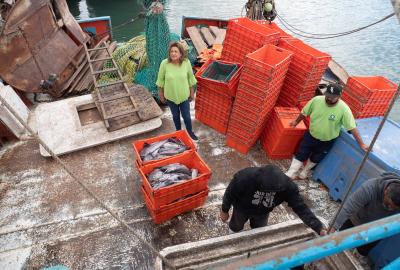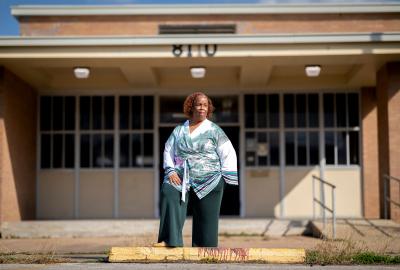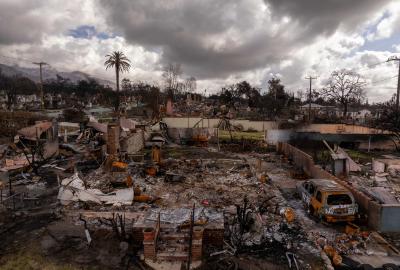Why this Florida weatherman gets emotional on air
Growing up in Puerto Rico, John Morales was fascinated by hurricanes and weather data. He studied meteorology and went on to become a trusted voice for Florida residents as the NBC-6 Miami weatherman, a position he has held for more than 30 years.
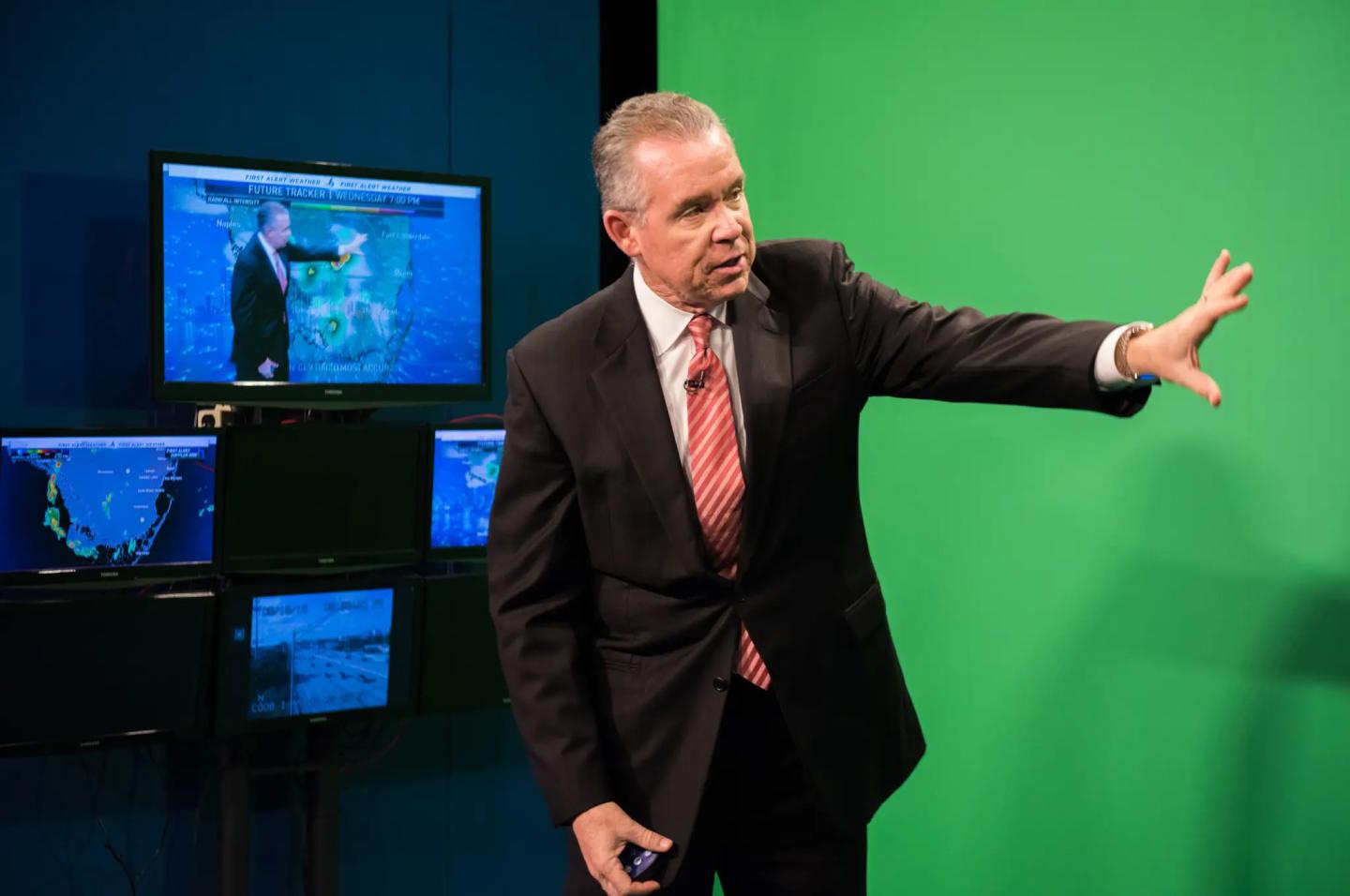
In October 2024, one of his broadcasts went viral on social media, when Morales could barely hold back tears as he reported on the approach of Hurricane Milton. That storm later killed 12 people in Florida and caused $34 billion in damage, just two weeks after Hurricane Helene devastated some of the same areas.
“[My tears] were empathy for the future victims of what I knew would be a horrific hurricane, and then frustration because I’ve been communicating on climate for a quarter century, urging folks to act,” Morales told Vital Signs. Despite warnings, he says, governments have not done enough to reduce the pollution that is driving more frequent deadly storms.
Morales started his career at the National Weather Service, an agency that is now facing major budget cuts after losing nearly 600 people under the Trump administration. He sat down with Vital Signs to talk about the growing danger of hurricanes.
(This interview has been edited for length and clarity.)
You’ve been watching the weather for decades. How have hurricanes changed over the course of your career?
Over the past 30 years, we've started to see an incredible number of storms go through rapid intensification, suddenly increasing wind speeds. If you have a storm rapidly intensify, there is pretty much an 80% chance that it's going to become a major hurricane. Those are the ones that damage the most property and take the most lives. And there are simply more of these Category 4 and 5 storms forming all over the planet.
Can you explain why we're facing more Category 4 and 5 hurricanes?
By burning fossil fuels, we are warming the entire planet, and the oceans end up absorbing about 90% of that heat. Warmer oceans cause more water to evaporate off the surface of the ocean. The more evaporation, the more water vapor is circulated into the center of a hurricane. That moisture then rises and condenses into rain clouds. That process releases energy into the hurricane and leads to faster wind speeds.
Environmental news that matters, straight to your inbox
What made you so emotional during your broadcast about Hurricane Milton last year?
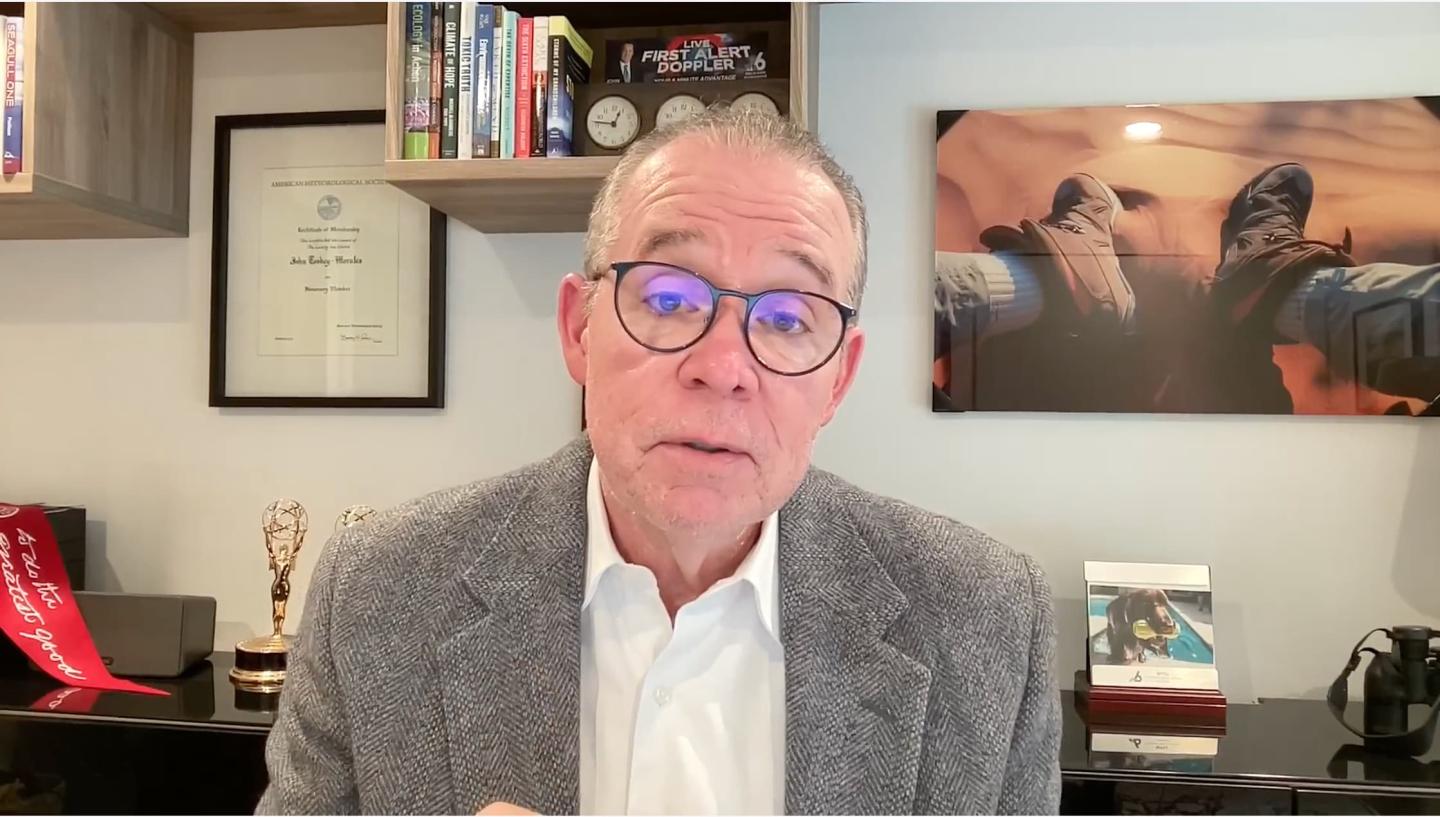
Just as I was about to go on TV, a note from the National Hurricane Center crossed my alert system indicating that Hurricane Milton had attained Category 5 status. You have to keep in mind that it was just a Category 1 the evening before, and now it was on pace to be one of the fastest intensifying hurricanes in the history of the Atlantic basin.
Many factors came together to make me lose my composure. It was a combination of — I want to call it angst — but others might call it climate anxiety. It was also empathy for future victims. And then the last factor was frustration because I've been communicating on climate for a quarter century and I've been urging folks to act, whether that’s through voting, taking community action, or even individual action. Despite years of doing that, we have record CO2 levels in the atmosphere, methane all over the place, and insufficient action at the local, state, national and international scale.
I've been telling people that we would get to this point, that we would see hurricanes intensify in this fashion; that hurricanes would be deadlier and costlier. And here we are. We didn't do anything about it and now we have to face it.
How does this hurricane season compare to previous years?
With cuts to NOAA [the National Oceanic and Atmospheric Administration, the parent agency of the National Weather Service] and to many other institutions that do scientific research in this country, we're seeing a degraded weather monitoring and observation system. It’s a dangerous situation.
The Federal Emergency Management Agency is being decimated, too. It's been widely reported that the FEMA director was just recently made aware that there is such a thing as hurricane season. So, you start to wonder how we're going to be able to get through this. Our ability to monitor and forecast hurricanes has been degraded. And when the hurricane arrives and wreaks havoc, our ability to respond to the emergency is degraded.
Frankly, I think the United States is not as prepared in 2025 as it's been in many recent years. I bet you'd have to go back several decades — to the 70s, 60s or 50s — to the last time that this country was so disorganized and unprepared to meet a disaster.
John Morales Florida meteorologistI would recommend, given what's going on in 2025, that Americans probably need to have enough supplies for 10 days of autonomy before anybody comes and helps you because that's the state of things right now.
President Trump has proposed cutting NOAA’s budget by 25%. How would those cuts, on top of previous staff losses, affect weather forecasting?
It's going to be very difficult for a person like me, a hurricane forecaster for decades, to be able to do my job properly in 2025. I am not going to be as confident in the forecasts that are coming from the National Hurricane Center because I know that they're suffering from the same gaps in data that I'm experiencing.
We are sorely missing data because weather balloons are not being released due to the lack of staffing in the National Weather Service. Weather balloons collect very granular meteorological data which feeds computer forecast models all over the world.
Lack of staffing also leads to maintenance issues. A lot of the technicians lost their jobs because they were terminated or asked to retire early. So, weather radars could be compromised. Hurricane hunter aircraft may not be properly maintained and could therefore see cancellations of missions into hurricanes.
When you lack data, because radars are not working, or because planes are not flying, or because weather balloons are not being released – we're flying blind. I fear that this is going to cost lives.
What can people do to stay safe?
You need to know whether your home can stand up to strong winds and whether you are in a flood zone. If you're too vulnerable, you have to plan for an evacuation. If that’s the case, follow local authorities' instructions.
If you do stay at home because you know you're not going to flood and your walls and windows and roof can withstand a storm, you have to plan for that, too. You need supplies. You have to make sure that you'll be able to hold out not just for three days, like they used recommend. New guidance is that you have to be self-sufficient for seven days. And I would recommend, given what's going on in 2025, that Americans probably need to have enough supplies for 10 days of autonomy before anybody comes and helps you because that's the state of things right now.
Is there anything else you want people to know?
I think it's very important that Americans know that they can call or email their representatives to voice their concerns. We've already seen some weather data centers that were going to be closed no longer being shuttered because the public spoke up. Pressure works. Keep it up, and hopefully this will all be stopped.
